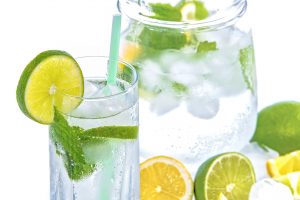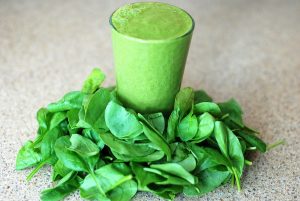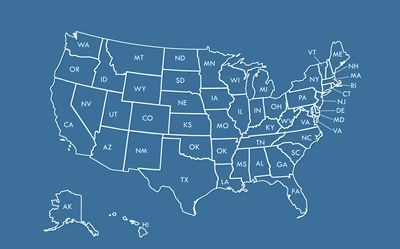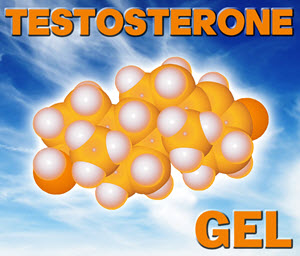 Hey there everybody! Let’s talk about kidney stones.
Hey there everybody! Let’s talk about kidney stones.
Now, I know that the topic of kidney stones might not sound like the most exciting thing in the world, but trust me, preventing them from happening is definitely worth paying attention to.
So, what are kidney stones? They're these little buggers that form inside your kidneys when certain substances in your urine get too concentrated. They can vary in size from a grain of sand to a golf ball; passing one of those bad boys can be extremely painful.
But don't worry; there are things you can do to prevent them from forming in the first place.
 First up, let's talk about hydration. Drinking enough water is critical in preventing kidney stones.
First up, let's talk about hydration. Drinking enough water is critical in preventing kidney stones.
When you're dehydrated, your urine gets too concentrated and that can lead to the formation of kidney stones. So, make sure you're drinking enough water throughout the day. A good rule of thumb is to drink enough so that your urine is clear or pale yellow.
Next, let's talk about what you're eating. Certain foods can increase your risk of developing kidney stones. For example, a diet high in salt, sugar, and animal protein can increase your risk.
So, try to limit your intake of these foods and focus on a healthy diet rich in fruits and vegetables.
Now, if you're someone who's already had kidney stones, there's a chance you might be more prone to getting them again. If that's the case, your doctor might put you on a special diet to help prevent them from coming back.
You might have heard of magnesium before; it's a mineral essential for muscle and nerve function and for keeping your heart healthy. But did you know that it can also help prevent kidney stones from forming?
Here's how it works: magnesium helps to regulate the levels of other minerals in your urine, like calcium and oxalate. And when those levels get too high, it can lead to the formation of kidney stones. So, by ensuring you're getting enough magnesium in your diet, you can help prevent those levels from getting too high.
 Now, the recommended daily amount of magnesium for adults is around 400-420 mg for men and 310-320 mg for women.
Now, the recommended daily amount of magnesium for adults is around 400-420 mg for men and 310-320 mg for women.
You can get magnesium from leafy greens, nuts, and whole grains. But if you've had kidney stones before or are at a high risk of developing them, your doctor might recommend taking a magnesium supplement.
There have been several studies that have investigated the relationship between magnesium and kidney stones. Here are a couple of examples:
- A study published in the Journal of Urology in 2004 found that higher magnesium levels in the urine were associated with a lower risk of developing kidney stones. The study included over 45,000 men and over 85,000 women and found that those with the highest magnesium levels in their urine had a 34% lower risk of developing kidney stones than those with the lowest levels.
- Another study published in the American Journal of Epidemiology in 2006 found that a higher magnesium intake was associated with a lower risk of developing kidney stones in women. The study included over 75,000 women and found that those with the highest magnesium intake had a 34% lower risk of developing kidney stones than those with the lowest intake.
It's worth noting that these studies are observational, which means that they can't prove that magnesium causes a lower risk of kidney stones, but just that there is an association.
Exercise is also essential for preventing kidney stones. When you're active, it helps move things along in your urinary tract, which can help prevent the formation of kidney stones.
Lastly, let's talk about supplements. Some supplements, like vitamin C and calcium, can increase your risk of developing kidney stones. So, ensure you're not taking too many of these supplements, and always check with your doctor or a nutritionist before starting any new supplements.
 In summary, preventing kidney stones is all about staying hydrated, eating a healthy diet, exercising, and being mindful of any supplements you take.
In summary, preventing kidney stones is all about staying hydrated, eating a healthy diet, exercising, and being mindful of any supplements you take.
If you've already had kidney stones, make sure to talk to your doctor about what steps you can take to prevent them from coming back. Remember, an ounce of prevention is worth a pound of cure!
And that's it, folks! I hope you found this information helpful. Don't hesitate to contact your doctor if you have any other questions or concerns. And remember, drink up and stay healthy!
Contact Us Today For A Free Consultation

- Ten Simple Steps That You Can Take To Knock Out Stress [Last Updated On: May 2nd, 2024] [Originally Added On: June 11th, 2020]
- Natural, Simple Ways to Improve Your Sleeping Habits [Last Updated On: April 18th, 2024] [Originally Added On: June 26th, 2020]
- Ten Ways to Manage Cholesterol and Testosterone Levels [Last Updated On: May 30th, 2024] [Originally Added On: July 16th, 2020]
- Five Kinds of People that Have a Lot of Sex! [Last Updated On: April 11th, 2024] [Originally Added On: July 17th, 2020]
- Ditch the Alcohol if You Want to Maximize the Benefits and Gains From Weightlifting [Last Updated On: January 22nd, 2024] [Originally Added On: July 18th, 2020]
- 13 Issues That Can Kill Your Libido [Last Updated On: March 15th, 2024] [Originally Added On: July 19th, 2020]
- Ten Ways to Enhance Your Metabolism [Last Updated On: June 28th, 2024] [Originally Added On: July 20th, 2020]
- Fourteen Common Causes of Fatigue and What You Can Do to Improve Your Energy Levels! [Last Updated On: June 21st, 2024] [Originally Added On: August 4th, 2020]
- Testosterone's Effects Upon the Human Body [Last Updated On: June 11th, 2024] [Originally Added On: August 9th, 2020]
- Fifteen Foods That Can Help You Get Your LDL Cholesterol Under Control [Last Updated On: May 1st, 2024] [Originally Added On: November 28th, 2020]
- Exercise Optimizes Testosterone Production [Last Updated On: January 29th, 2024] [Originally Added On: February 13th, 2021]
- How to Get Bigger Arms [Last Updated On: November 25th, 2024] [Originally Added On: March 14th, 2021]
- It’s True: Stress Causes Hair Loss and Thinning Hair, According to Science [Last Updated On: August 29th, 2024] [Originally Added On: May 4th, 2021]
- Get Pro-active, Don’t Depend on a GP only! [Last Updated On: October 24th, 2024] [Originally Added On: February 1st, 2023]
Word Count: 744




















